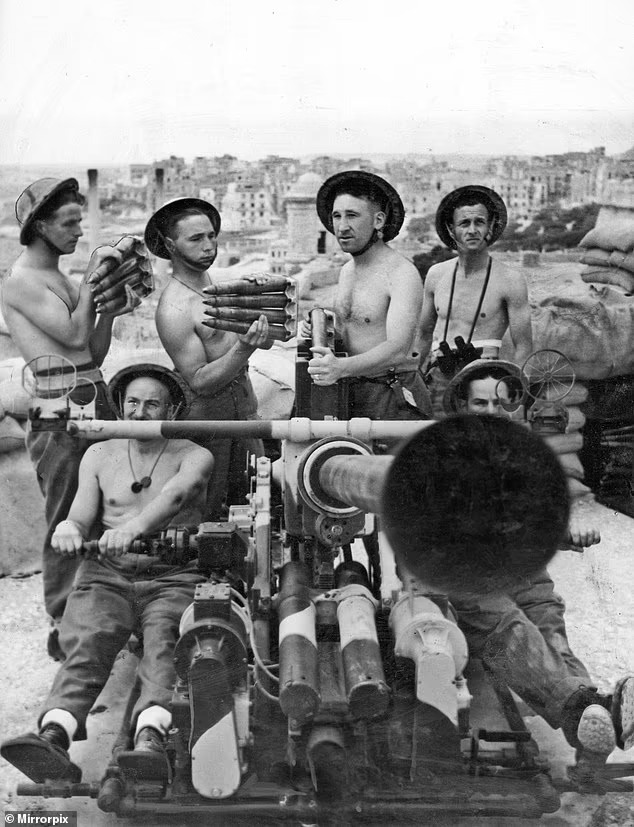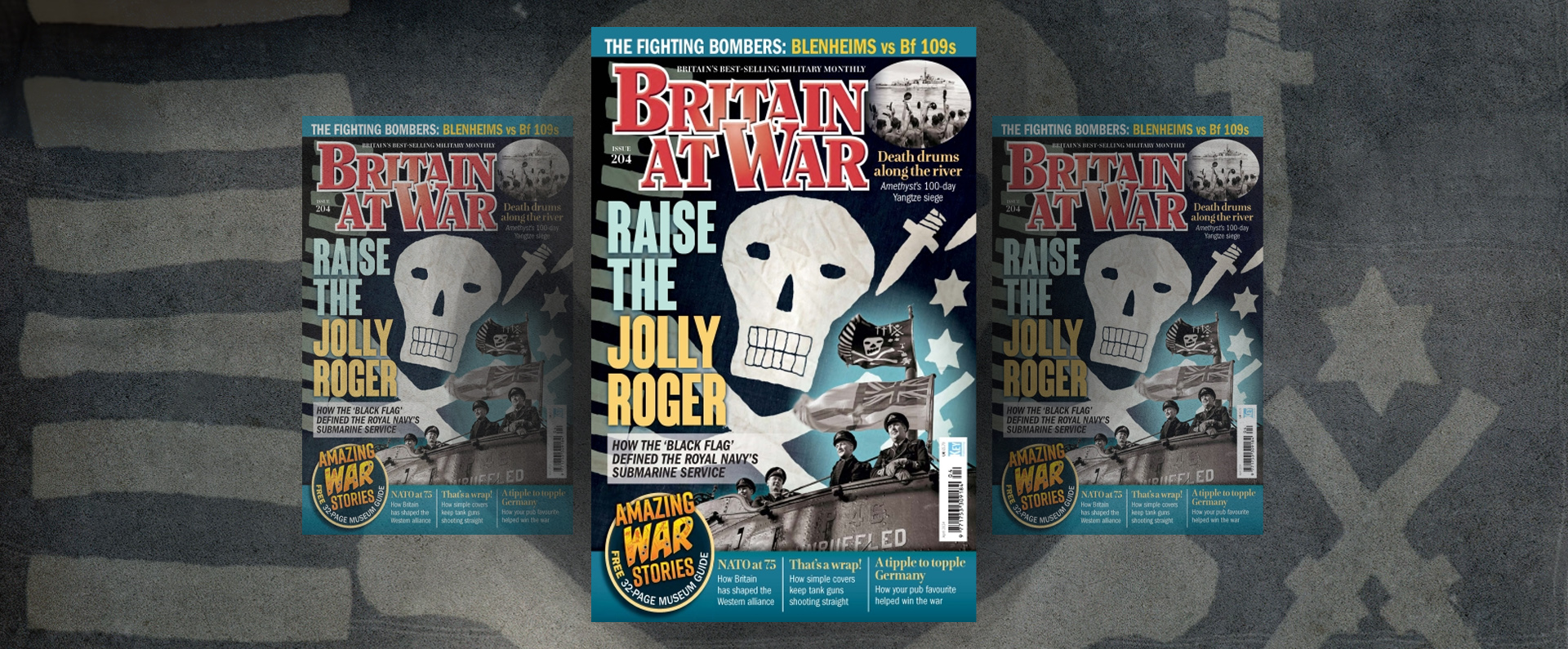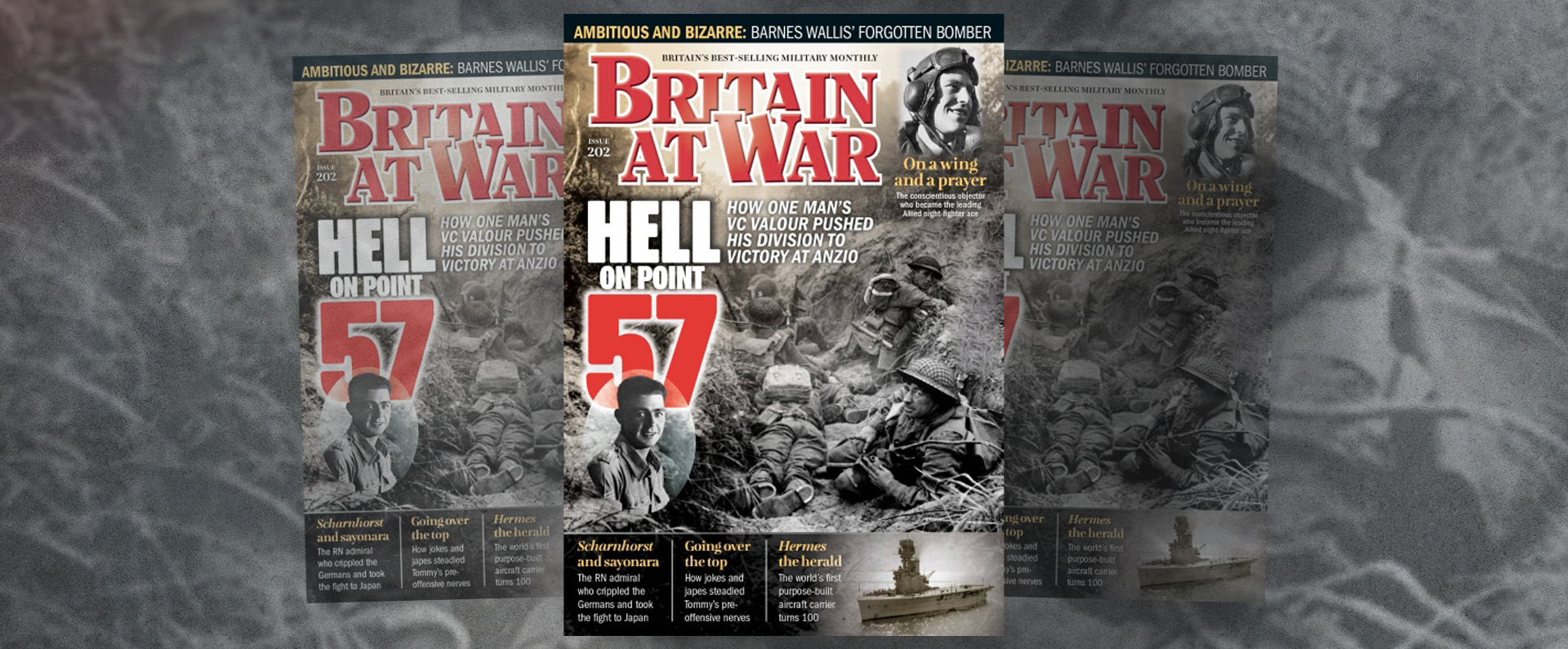
Published in the Mail on Sunday on 10 April 2022.
LORD ASHCROFT pays tribute to Malta’s heroic defenders who defied bombing three times more intense than the Blitz – and were honoured with Britain’s joint top gallantry award.
At the age of 90, Laurence Mizzi still has a cheerful demeanour and a spring in his step after a distinguished career as a teacher and, later, a broadcaster.
However, the grey-haired great-grandfather also has painful boyhood memories of when his homeland, the Mediterranean island of Malta, became the most bombed place on Earth.
Eighty years on, he recalls clearly how, day after day, hundreds of enemy bombs fell close to his family home. Yet the traumatic events of the Second World War caused even greater hardships, because the besieged island was so short of food and other key supplies.
Mizzi, who was aged ten at the height of the bombings, told me: ‘As a boy, I suffered more from hunger than from bombs. I remember feeling hungry a lot of the time because there was so little to eat.
‘Sometimes I used to cry from hunger and I didn’t want to go to school because my stomach ached so much.’
He compared the plight of the Maltese in 1942 to today’s crisis in eastern Europe.
‘What is happening in Ukraine reminds me of what happened to us,’ he said. ‘We suffered, but fortunately we survived. I cannot imagine what life would have been like if we had been occupied by the Germans.’
Today, Mizzi, who has lived on the island all his life, is long retired after finishing his career as chairman of Malta Broadcasting. He is married with two children, two grandchildren and a great-grandchild.
During the war, Mizzi, the second eldest of six children, lived with his parents and siblings close to the docks in Malta’s Grand Harbour, which became the main target for the enemy bombing campaign.
It was for the bravery of people such as the Mizzi family that Malta would receive the first collective George Cross (GC) – Britain and the Commonwealth’s most prestigious medal awarded for gallantry not in the presence of the enemy. It is usually given to individuals, both civilians and those in the Armed Forces, particularly bomb disposal experts.
In the case of Malta, however, there was a very noticeable enemy in the form of Italian and German military aggressors from 1940 to 1942.
Next week marks the 80th anniversary of the award of the GC to Malta on April 15, 1942, and the island nation will commemorate the occasion by remembering those who gave their lives so that Malta would not fall under the yoke of fascists and Nazis.
THE war was almost a year old when Malta’s struggle for survival began in the late spring of 1940. On June 10, Italy entered the war on Germany’s side. The following day, eight Italian aircraft took part in raids on Malta. The bombings would soon intensify.
At the time, the island, which is smaller than the Isle of Wight, had a civilian population of just over 250,000 and a garrison of some 18,000 troops.
But why was Malta considered so important to both Allied and Axis powers? Although small, the then British fortress island had huge strategic importance as a route to North Africa and the Middle East. Its splendid natural bay, Grand Harbour, provided a safe haven for ships to anchor and make repairs.
Malta also provided a valuable springboard for Allied forces, notably by sea and air, seeking to attack the Germans and Italians. However, Britain, which was fighting the war on other fronts, struggled to release the resources needed to protect the island.
By the New Year of 1941, the attacks on Malta involved the German Luftwaffe, too. On January 16, 1941, more than 70 enemy aircraft bombed the island, destroying 200 homes and damaging 500 more.
Soon, raids would involve more than 100 aircraft.
Laurence Mizzi can still recall the January 16 bombing and the impact it had on the island.
‘The explosions were strong and lengthy,’ he says. ‘We had never experienced such an intense attack. It was, in fact, the first attack by the Luftwaffe which had set up a base in Sicily.’ He remembers: ‘When the air raid was sounded, some passers-by sought refuge in the church of St Lawrence, since there weren’t shelters everywhere.
‘When the explosions increased, my grandfather left and went to shelters which served as temporary houses for families who did not want to be far from their homes.
‘My grandfather’s decision saved his life. After he had walked for a while, the crypt of St Lawrence was hit by bombs and totally demolished. No one survived. I remember that I burst into tears while listening to the story of destruction and death.’
More than 30 men, women and children died under the rubble of the church.
After the fall of Crete in June 1941, Malta found itself more than 1,000 miles from its nearest help. Early in 1942, Hitler decided it was time to put an end to Malta’s resistance once and for all, using the Luftwaffe even more extensively to try to bomb the island into submission.
By this point, attempts by the British to reinforce Malta with significant supplies had failed, leaving the inhabitants and the garrison close to starvation and with ammunition and fuel supplies badly depleted.
With the island heavily dependent on imported food, ration cards were issued for basic supplies such as lard, margarine, oil, tea, coffee, corned beef and tinned sardines. There was a thriving black market for everyday supplies, especially kerosene.
The health of the Maltese population deteriorated. Scabies was endemic, as were diseases such as typhoid and tuberculosis. Yet Malta’s determination not to surrender never flinched.
As the crisis worsened, and more people were forced to live underground or in makeshift shelters for safety, King George VI bestowed the GC on the island, a collective award of the medal that had been instituted only two years earlier.
Addressed to the island’s governor, Sir William Dobbie, the letter from the King read: ‘To honour her brave people, I award the George Cross to the Island Fortress of Malta to bear witness to a heroism and devotion that will long be famous in history.’
The governor’s reply to the King was full of loyalty to the crown and defiance towards the enemy: ‘The people and garrison of Malta are deeply touched by your Majesty’s kind thoughts for them in conferring on the fortress this signal honour.
‘It has greatly encouraged everyone, and all are determined that, by God’s help, Malta will not weaken but will endure until victory is won. All in Malta desire to express once again their devotion to your Majesty and their resolve to prove worthy of the high honour conferred.’
There was no doubt that Sir William’s respect for the Maltese people was immense. Joseph Attard, an island historian who served in the RAF during the war, summed this up perfectly when he wrote in his book The Battle Of Malta that the fate of the island’s population was ‘daily in his [Dobbie’s] thoughts and prayers’.
Attard added: ‘There was a time in the beginning when he was haunted by the possible reaction to the severe bombing, but the Maltese had risen higher than his expectations and stuck to it admirably. There had also been the fear of invasion and the first shortages in food which had also been somehow surmounted.
‘He had nothing but admiration for them. Their simple gestures whenever he talked to them after some raid, like kissing or wetting his hands with their tears or even patting him on the back, left him moved beyond description.’
By the summer of 1942, nearly three years into the war, the outcome of the greatest conflict the world had ever seen hung in the balance.
British Prime Minister Winston Churchill ordered Operation Pedestal, a convoy of 13 British merchant ships supported by warships, including aircraft carriers and two battleships, to save Malta at all costs. The result was one of the bloodiest sea battles of the entire war. Only five of the British merchant ships would reach the Maltese capital, Valletta.
Ohio, a US tanker on loan to Britain, was severely damaged by enemy bombs but also limped into Grand Harbour as islanders lined the quayside to welcome the survivors of the convoy. The American ship was able to unload its much needed oil and kerosene before it broke in two.
Malta was resupplied and the island survived to fight on.
The GC, which had been awarded five months earlier, was officially presented to Malta on September 13, 1942, and it toured the island soon afterwards for the local population to admire.
By November, the ‘siege of Malta’ was over, after more than 3,000 bombing raids during which some 17,000 tons of bombs had been dropped on the island.
To put the bombing into perspective, Malta received roughly three times more bombs per square mile than London during the Blitz. The Grand Harbour area suffered worst, with vast areas reduced to rubble.
About 7,000 military personnel and civilians gave their lives during the siege of Malta and related fighting, and it was an event that changed the course of the war.
It is unsurprising that many islanders are comparing their suffering 80 years ago to that of the Ukrainians today. Both nations sustained relentless attacks from a far superior military power, their only means of prevailing being not to surrender.
Whereas Ukraine has the might of Russia to contend with, Malta faced the combined strength of Germany and Italy, at that time two of the strongest military powers in Europe.
But in 1942, midway through the war, the tide was turning and in December, air and sea forces operating from Malta switched on to the offensive. By May 1943, they had sunk 230 Axis ships in 164 days, the highest Allied sinking rate of the war. On May 7, 1945, Germany surrendered and the war in Europe was over.
During my recent visit to Malta, I met Charles Debono, curator of the National War Museum and author of Malta During World War II. He allowed me to become one of the privileged few who has handled the island’s much treasured GC and to study a precise replica of the famous letter from King George VI awarding the medal to the island.
While the rest of Malta has been rebuilt, the Royal Opera House at the entrance to Valletta has been left ruined, as it was in 1945. It acts as a reminder of the island’s suffering, and the sheer scale of the bombing.
Malta, a strong, proud, vibrant nation which gained its independence from the UK in 1964, is one of only three recipients of a collective George Cross. The second such award was to the Royal Ulster Constabulary in 1999 after more than 300 officers were killed in the line of duty during the Troubles. According to the citation, the decoration was ‘to recognise the collective courage and dedication to duty’ of those who had served in the constabulary.
The third collective award was to the National Health Service and its staff last year in the wake of the coronavirus pandemic – a move I actively campaigned for.
The citation stated: ‘Over more than seven decades, and especially in recent times, you have supported the people of our country with courage, compassion and dedication, demonstrating the highest standards of public service.’
I have long had a soft spot for Malta. My respect for the courage of the islanders 80 years ago is immense, and Malta’s rich history is one of the main reasons I am such a frequent visitor to the island. The gritty resistance of the Maltese, when they were war-weary, near starvation and, in many cases, sick, was incredible. Fortunately, partly due to their rare collective award of the GC, this courage will never be forgotten.
Before I left Malta, I wanted to visit one more location: the War Memorial in Valletta – the equivalent of the UK’s Cenotaph – which commemorates the island’s dead from two world wars. I stood, head bowed, in front of the obelisk in the shape of a Latin cross made from limestone and then studied the four plaques on each side of the monument, one of which reproduces the letter sent by King George VI to the island in April 1942.
It was a fitting way for me to pay my silent respects to the bravery of those who contributed to making Malta the world’s first and only George Cross island.
Read this article on MailOnline.com.
For more information, visit:
LordAshcroftOnBravery.comImage: ©Mirrorpix



